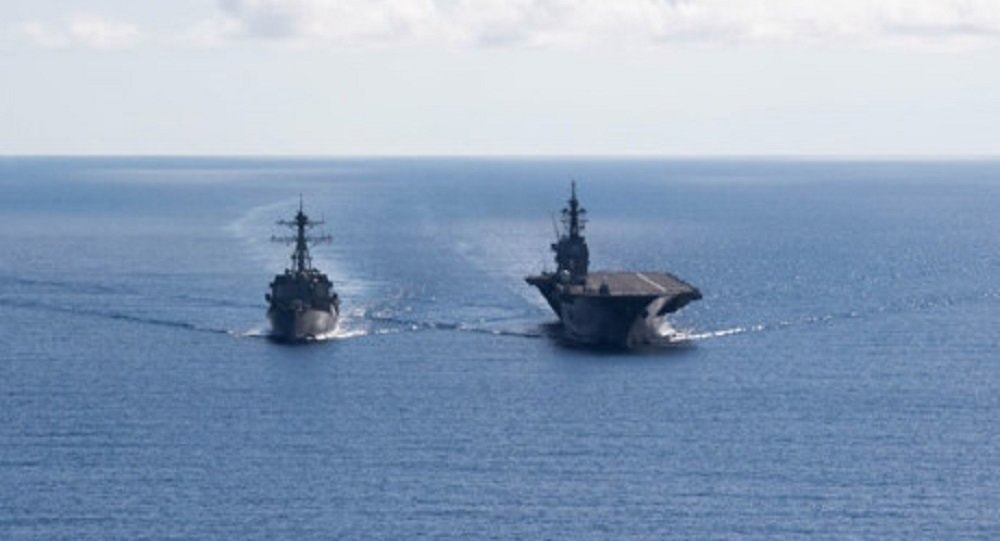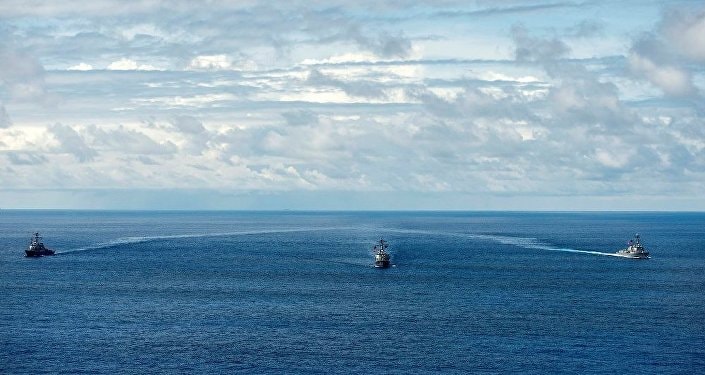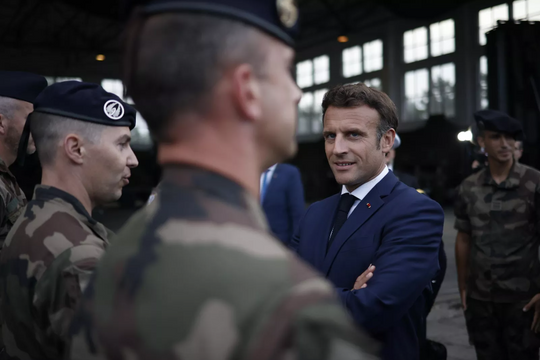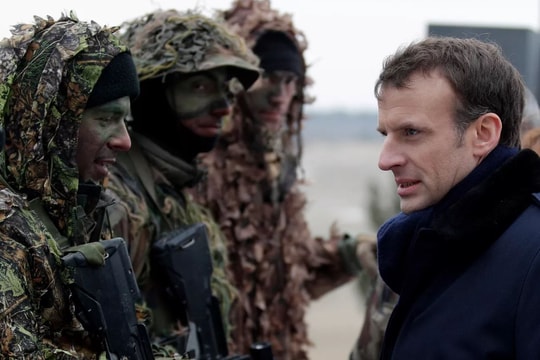Many active military moves of Europe in the East Sea
According to the South China Morning Post, in August this year France will conduct a large-scale military exercise in Southeast Asia with the participation of the air force.
This week, in the South China Sea, a joint patrol by France and Britain is expected to take place, in which, in addition to two French warships, there will be two British destroyers and a landing helicopter. What is the reason for the active military moves of these European powers, which are far from the Asian region?
This is the issue discussed in an exclusive comment for Sputnik by Russian military expert Vasili Kashin.
 |
| More and more European countries are increasing their presence in the East Sea. |
For example, the UK recalls the old five-party agreement on defense with the participation of the UK itself, Australia, New Zealand, Singapore and Malaysia. France has gradually increased its military presence in its Pacific territories. Both countries have initiated defense interactions with countries in the region that do not have alliance relations with them.
Britain and France have shown solidarity with the United States on issues related to the situation in the South China Sea. Since 2014, the two countries have begun sending their warships to the area. At the end of May this year, two French warships sailed close to the islands currently controlled by China in the South China Sea.
The Europeans are not building up their costly military presence in Asia because they are powerful. On the contrary, they are weak and unable to solve even simple strategic problems in the regions surrounding Europe on their own. The experience of the coalition operation in Libya in 2011 and the French operation “Serval” in Mali shows that even the largest European powers are completely dependent on US military support.
 |
| Ships exercise in the East Sea? |
The European armed forces are faced with complex and expensive systems of weapons procurement, as well as with financial shortages. For example, before France kept secret information about the availability of Rubis submarines, it was known that in 2014 this indicator was only 46.2%. The availability of about 150 Mirage2000 fighters of various versions also fluctuated between 32.9% and 41.7% (not counting the Mirage2000N nuclear-powered aircraft, since there is no information about their availability). These two types of aircraft are the basis of the French air force, while we are talking about a country with a military budget comparable to Russia.
As for Britain, due to the worsening technical condition of the British fleet in early 2017, the country found itself in a situation where none of its multi-purpose submarines were ready to go to sea.
At the same time, Western European countries oppose the US call for increased military spending and reach a point of strengthening the US military presence to "contain Russia". So why, when faced with such difficulties and unable to protect themselves, do Europeans spend money to send their warships to a remote part of the world?
These countries cannot change the balance of power in the Asia-Pacific region. The warships that Britain and France can send to the western Pacific, compared to the powerful Asian fleets such as those of China, Japan, and South Korea, are mostly old and poorly armed. In the event of any major military conflict in the Pacific, French and British warships will be virtually powerless. The only explanation that can be given here is that the presence in the South China Sea, according to European experts, allows to emphasize the role of Britain and France in international security issues and create more arguments in dialogue with the United States.
Thus, the European countries are following a very strange strategy. Not having enough defense means for themselves, France and Great Britain are spending their already limited resources on military presence in the Pacific. These countries believe that by sending a few old, militarily insignificant warships to this region, they will make the United States feel moral obligations to Europe and take into account the interests of Britain and France. For this purpose, these two European countries are ready to complicate relations with China, their important economic partner. Given the results of the recent G7 summit and the US imposition of tariffs on European goods, this move is strange. We will wait and see where this policy leads, - concluded the Russian military expert.







